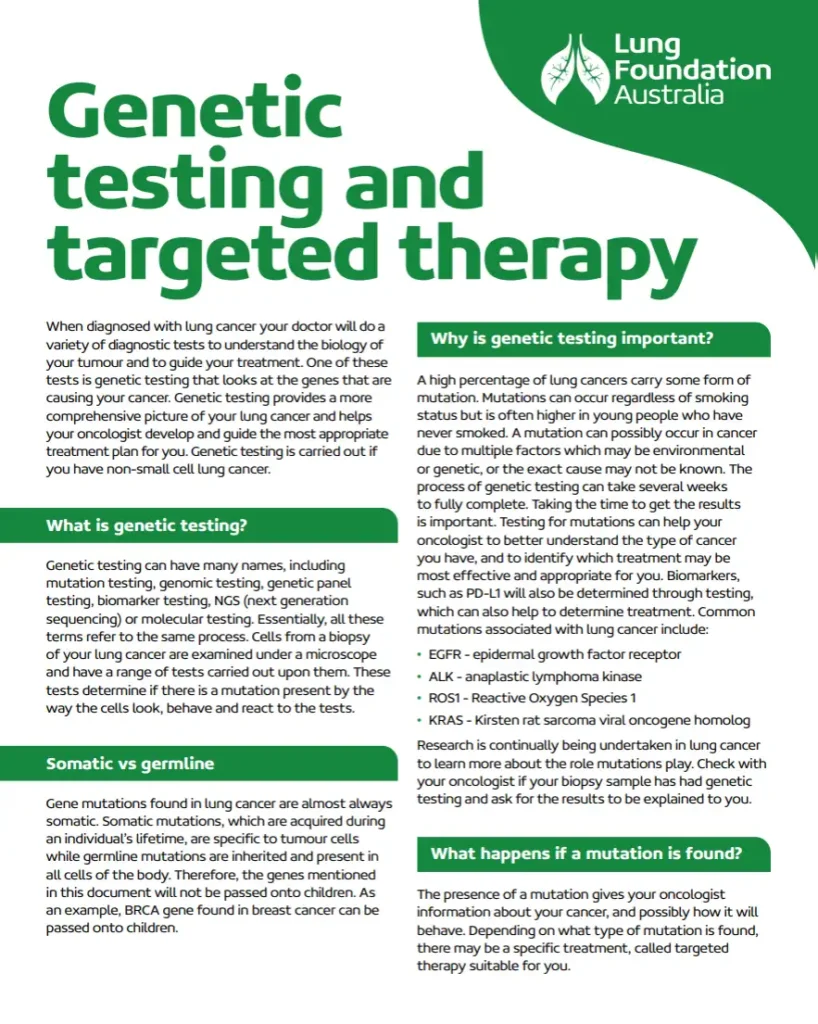When a person is diagnosed with non-small cell lung cancer (NSCLC), one of the first steps in personalising their treatment is genetic testing. Also referred to as mutation testing, genomic testing, biomarker testing, or molecular profiling, this process involves analysing a sample of the tumour—usually obtained through a biopsy—to identify specific genetic mutations that are driving the cancer’s growth. These mutations are typically somatic, meaning they are acquired during a person’s lifetime and are not inherited.
Some of the most common mutations found in NSCLC include changes in the EGFR, ALK, ROS1, and KRAS genes. Identifying these mutations allows oncologists to select targeted therapies that are specifically designed to interfere with the cancer’s growth mechanisms. These therapies work by blocking signals that promote tumour cell proliferation, preventing abnormal cell survival, or directly attacking cancer cells. Unlike traditional chemotherapy, targeted therapies are often taken orally as tablets or capsules and can be used over extended periods.
While targeted therapies can be highly effective, they are not without side effects. Patients may experience skin changes, gastrointestinal symptoms, fatigue, or joint pain. It’s important to report these symptoms early so that healthcare providers can manage them effectively. Over time, cancer cells may adapt and become resistant to targeted treatments, which may necessitate a change in medication, dosage adjustments, or temporary treatment breaks—sometimes referred to as “drug holidays.”
If no actionable mutations are found, or if targeted therapy stops working, other treatment options such as chemotherapy, immunotherapy, or combination therapies may be considered. Biomarker testing, including PD-L1 expression levels, also plays a role in guiding immunotherapy decisions.
Patients are encouraged to ask their oncologist whether genetic testing has been performed and to discuss the results. Understanding the tumour’s mutation profile helps predict its behaviour and supports more informed, effective treatment planning.
Was this page helpful?
Good job! Please give your positive feedback
How could we improve this post? Please Help us.
